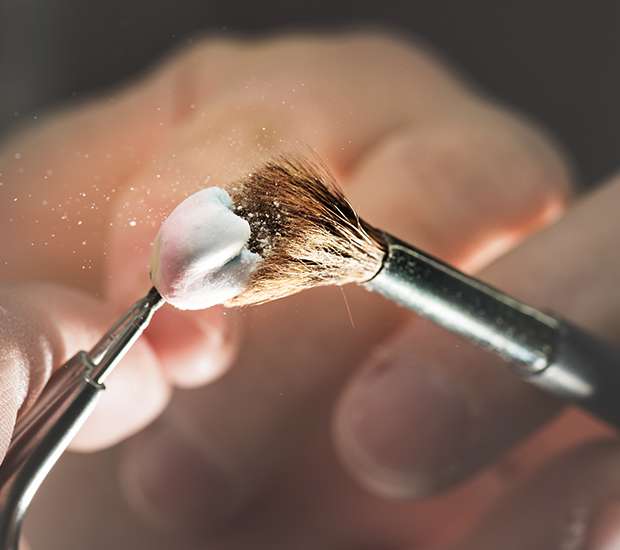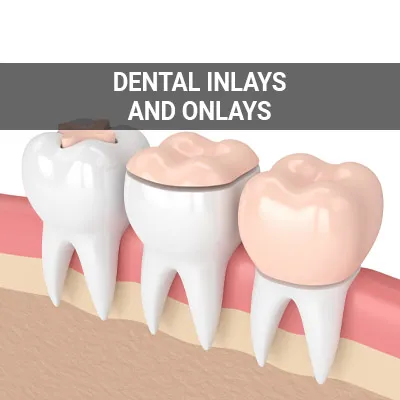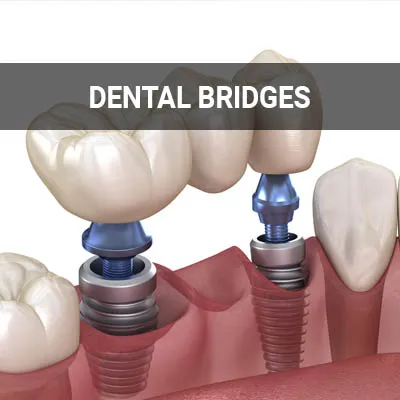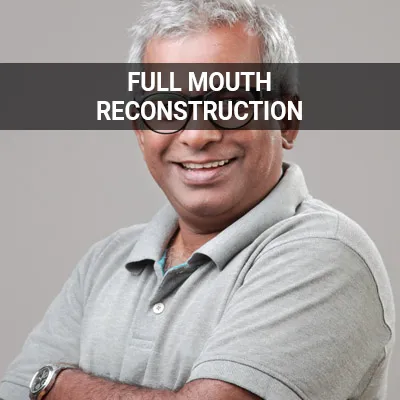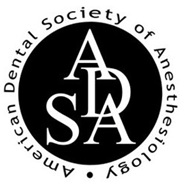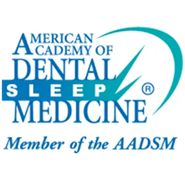Restorative Dentistry Miami, FL
Restoration dentistry maintains the functionality and well-being of the mouth while promoting overall dental health. When choosing the appropriate restorative treatment, it is important to factor in the type of dental issue and the patient's personal preferences. Choosing the right procedure can repair worn, decayed, damaged, or missing teeth and restore a healthy and beautiful smile.
We provide restoration dentistry at Feel Good Dentistry in Miami and the surrounding area. Our team can help restore your smile. Call us at (305) 230-4484 to learn more about our services or schedule an appointment.
What to Know About Restoration Dentistry
Restoration dentistry focuses on restoring functionality to teeth as well as the overall management of oral health. People with structural dental issues, including broken or missing teeth, can benefit from restoration dentistry. Restorative treatments allow patients to preserve as much of their natural teeth as possible.
Although the American Dental Association does not currently recognize restoration dentistry as a dental specialty, general dentists can perform various restorative procedures. General dentists can perform these preventative and corrective procedures to ensure that patients' mouths and teeth remain as healthy as possible. The right treatment can restore the tooth structure's integrity and health while maintaining a natural appearance.
“Restoration dentistry focuses on restoring functionality to teeth as well as the overall management of oral health.”
Benefits of Restorative Dentistry
There are many advantages to undergoing restorative treatment. Above all, restorative dentistry repairs missing or damaged teeth and restores them to their natural, functional state. Other benefits of seeking restoration include:
- Enhancing the teeth and overall appearance of the mouth
- Improving oral and overall health
- Offering support for a more adequately structured mouth
- Preventing tooth movement
- Protecting natural teeth and their surrounding structures
- Providing a life-long solution to pain and harmful oral conditions
Restorative dentistry differs from cosmetic dentistry in that restorations address function and health, while cosmetic treatments primarily focus on aesthetics. Many cosmetic treatments, such as veneers and crowns, mimic restorations — but the primary goal differs.
“Restorative dentistry differs from cosmetic dentistry in that restorations address function and health, while cosmetic treatments primarily focus on aesthetics.”
Qualified Restorative Dentists
Almost all dentists are qualified and trained to perform restorative treatments. However, not every dentist will offer restorative treatments or procedures, depending on the focus of their practice. It is important that patients seek a dentist who performs the type of procedure they are looking for.
At Feel Good Dentistry, we offer restorative treatments. We may also refer a patient to a specialist if the type of procedure or treatment they need requires a more specialized approach. In some cases, a patient with multifaceted dental issues may see more than one dentist or specialist for each of their dental conditions to properly treat their case. We will discuss this in greater detail during the initial consultation appointment.
“Almost all dentists are qualified and trained to perform restorative treatments.”
Check out what others are saying about our dental services on Yelp: Restorative Dentistry in Miami, FL
Finding the Right Restorative Dentist
When seeking restorative treatment, it is important to look at certain factors that may set a dentist apart from the rest. The most crucial factor is patient age, as many dentists focus their services on a particular group of individuals and may be more qualified to treat that age group.
Teens
As teens have fully developed permanent teeth, they may undergo most types of dental restorations. However, their jaw and underlying bone are still developing; thus, they likely are not candidates for permanent restorations, such as dental implants. We recommend seeking a dentist who works primarily with teens and understands how to relay information to a patient in that age group.
Adults
Adults with fully developed teeth, gums, and bones are most often candidates for any type of dental restoration. However, every patient is different and requires varying treatments that work for their overall health depending on many factors, such as medications taken, oral and general health conditions, and preference. Seeking a dental professional who works primarily with adults can help patients attain the type of restoration they need more quickly.
“The most crucial factor is patient age, as many dentists focus their services on a particular group of individuals and may be more qualified to treat that age group.”
Questions Answered on This Page
Q. What is restorative dentistry?
Q. What are the benefits of restoration dentistry?
Q. Who is qualified to perform restorative treatments?
Q. What factors should be considered when looking for a restorative dentist?
Q. What are the types of restorative treatments?
People Also Ask
Q. What methods are available to repair a chipped tooth?
Q. What are indirect dental restorations?
Q. Is dental implant restoration common?
Q. What is a partial removable denture for one missing tooth?
Types of Restorative Treatments
Dental restorations can be made from a variety of materials, including porcelain, dental amalgam, composite resin, and gold. Composite restorative materials are the most commonly used restorations today as they provide shade matching, tooth-colored materials that unify the tooth with the rest of the patient's mouth. Dental restorations for missing or damaged teeth include fillings, veneers, crowns, bridges, removable and fixed dentures, implants, inlays and onlays, and dental bonding.
Restorative dentist treatment is an ongoing process. Many patients require more than one dental restoration to help maintain a healthy oral cavity. Even patients who have only one dental restoration must continually upkeep their restoration and visit the dentist routinely to ensure it remains intact and functional. We will inform patients of recommended care instructions and their required office visits when undergoing restorative treatment.
“Dental restorations for missing or damaged teeth include fillings, veneers, crowns, bridges, removable and fixed dentures, implants, inlays and onlays, and dental bonding.”
Frequently Asked Questions
Q. What are the options for replacing missing teeth?
A. A missing or extracted tooth can be replaced through a variety of treatments. The most commonly used restorations are crowns, bridges, and partial or complete dentures. Crowns are typically used for one tooth, while bridges and dentures are a more common option for treating multiple teeth.
Q. When are restorations done instead of an extraction?
A. We generally try to save patients' natural teeth as no dental restoration is as functional and effective as a natural tooth. In many cases, we can use a dental restoration instead of pulling a patient's tooth. However, in cases of severe decay, deterioration, or infection, an extraction may be necessary to maintain the health of the tooth in question and surrounding structures.
Q. What are the types of restorations?
A. A dental crown is a cap that covers an entire tooth; a bridge consists of multiple crowns anchored together to replace two or more teeth; dentures are tooth-replacement devices that take the place of two or more missing teeth; and implants are artificial roots that hold dental restorations such as crowns and bridges.
Q. Is dental restoration an option for children?
A. Restorative dentistry is available to all age groups. It is important to look for a dentist who focuses on or has experience working with children. There are limited restorative treatments available to children as their teeth and mouths are continuing to develop.
Q. What is the most common type of restorative treatment?
A. Fillings and crowns are the most common restorative treatments. Fillings are frequently done because of the commonality in acquiring cavities from early childhood to late adulthood. Crowns are used for replacing teeth after various procedures, from severe decay to root canals.
Dental Terminology
Call Us Today
Tooth damage and decay can cause many oral and overall health problems. Our team at Feel Good Dentistry provides restoration dentistry to restore the health of your smile. Call us today at 305-230-4484 to learn more about our services or schedule an appointment.
Helpful Related Links
- American Dental Association (ADA). Glossary of Dental Clinical Terms. 2025
- American Academy of Cosmetic Dentistry® (AACD). Home Page. 2025
- WebMD. WebMD’s Oral Care Guide. 2025
About our business, license, and website security
- Feel Good Dentistry was established in 1998.
- We accept the following payment methods: American Express, Cash, Check, Discover, MasterCard, and Visa
- We serve patients from the following counties: Miami-Dade County
- We serve patients from the following cities: Miami, Doral, Hialeah, Fontainebleau, Homestead, Sweetwater, Coral Gables, Kendall, South Miami, Westchester, Pinecrest, Dadeland, Coconut Grove, Palmetto Bay, and Brickell
- FL (License #DN14923). View License Information and Specifics
- National Provider Identifier Database (1528403946). View NPI Registry Information
- Healthgrades. View Background Information and Reviews
- Norton Safe Web. View Details
- Trend Micro Site Safety Center. View Details
Back to top of Restorative Dentistry
